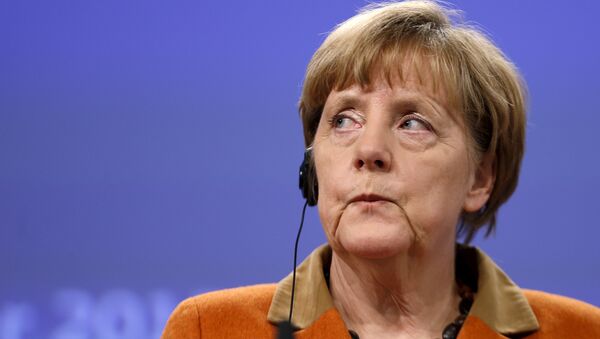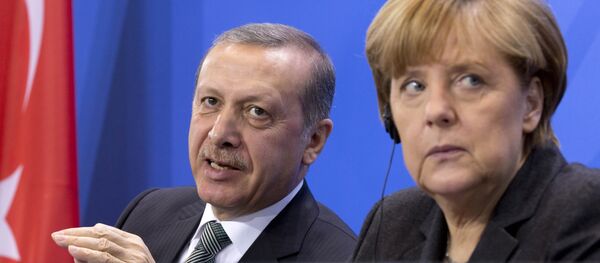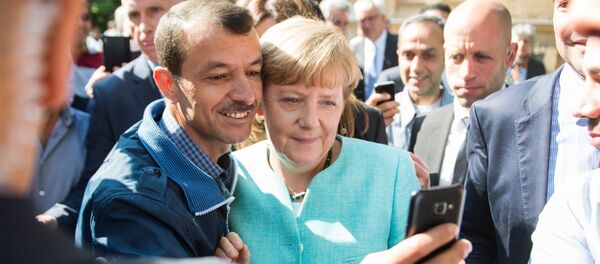"It is part of my political work, because I am convinced that we are a strong country that will come out from this phase and become stronger," Merkel said, adding, however, that sometimes she also thinks "that this sentence is somewhat overstated […]. So much so that I hardly prefer to repeat it as it has become kind of a plain motto, almost an empty phrase," Merkel said.
The German Chancellor said the slogan for the first time in August 2015. Surveys show that many Germans don't understand the meaning of the statement and even reject it, the newspaper wrote.
The pressure on the German Chancellor has sharply risen over the last few months. According to German political expert Alexander Rahr, Merkel's fate at the upcoming 2017 elections will, among other things, depend on whether Ankara will abide by the EU-Turkey deal on migrants.
"The fate of Ms. Merkel could be changed by Erdogan if he sticks to the agreements with the EU. If he continues to keep the border between Turkey and the EU closed, then it will be positive for the German Chancellor," Rahr said.
Some experts also believe that the refugee crisis in Europe and Merkel's decision to resolve it directly affect the mood of the German population and, consequently, the election results.
"The Germans are dissatisfied with decisions on migration policy in the first place. Ordinary people are very concerned about the uncontrolled growth of migration flows and an increase in crimes […]," Russian political expert Nikolay Topornin told RIA Novosti.
On July 18, a 17-year-old Afghan asylum seeker launched an axe and knife attack on passengers of a commuter train in Bavaria, wounding five tourists. Four days later, a German of Iranian origin shot nine people in Munich and committed suicide.
On July 24, a Syrian refugee exploded a bomb outside a music festival in Bavaria's Ansbach, killing himself and wounding 15 bystanders, while another Syrian killed a woman with a machete in Reutlingen near Stuttgart.




